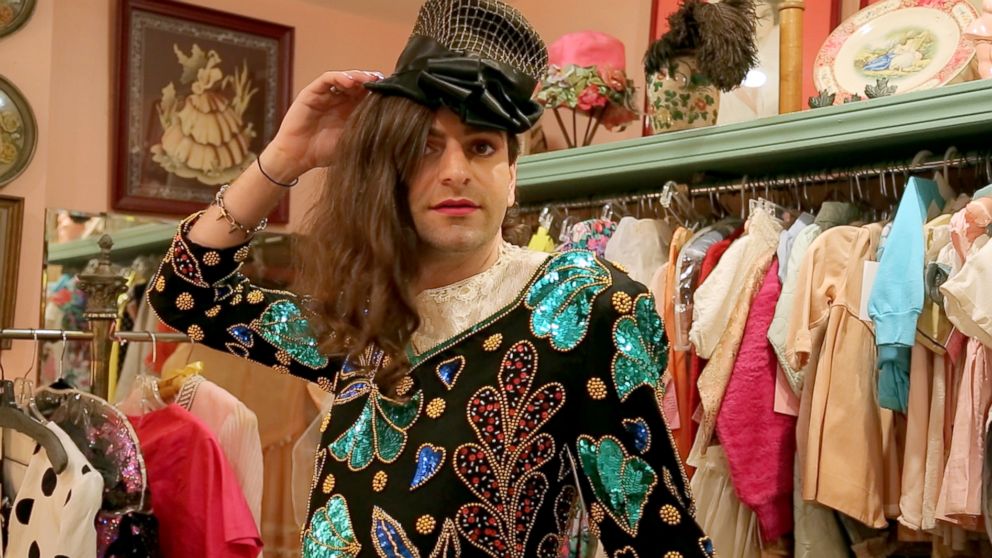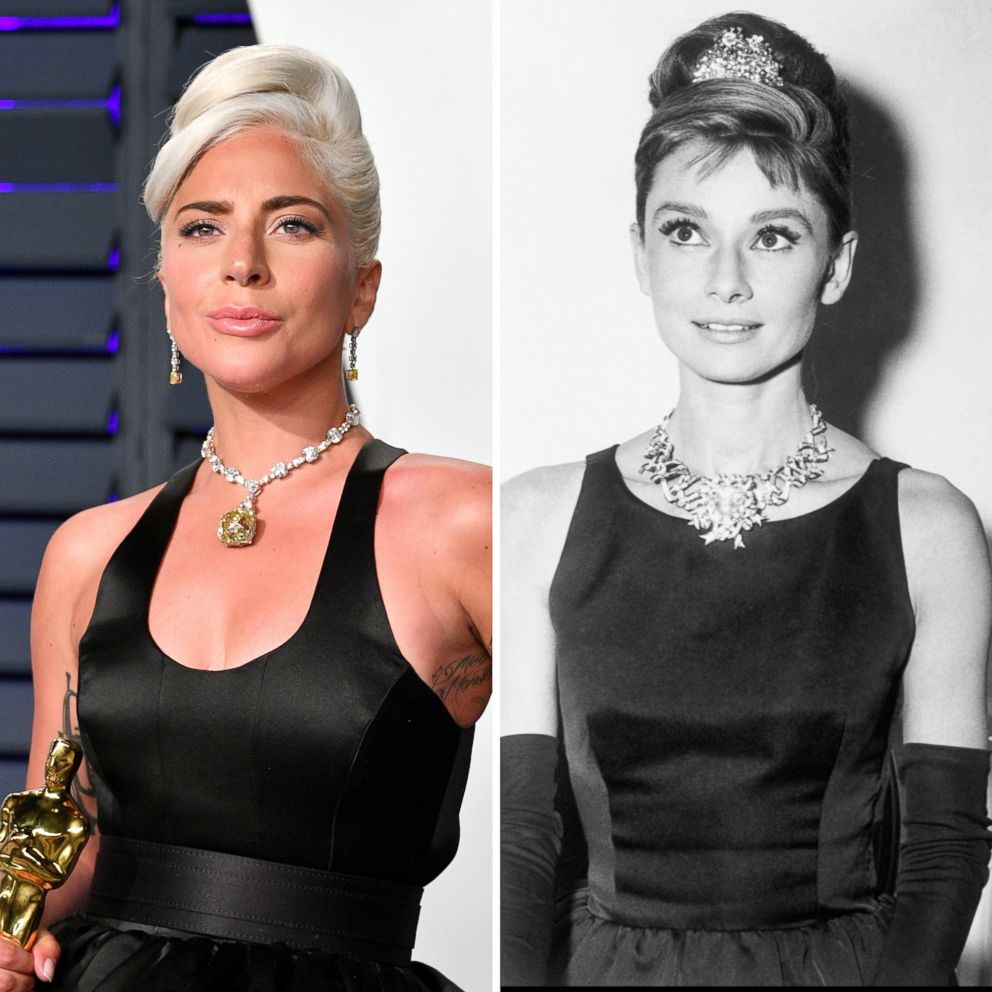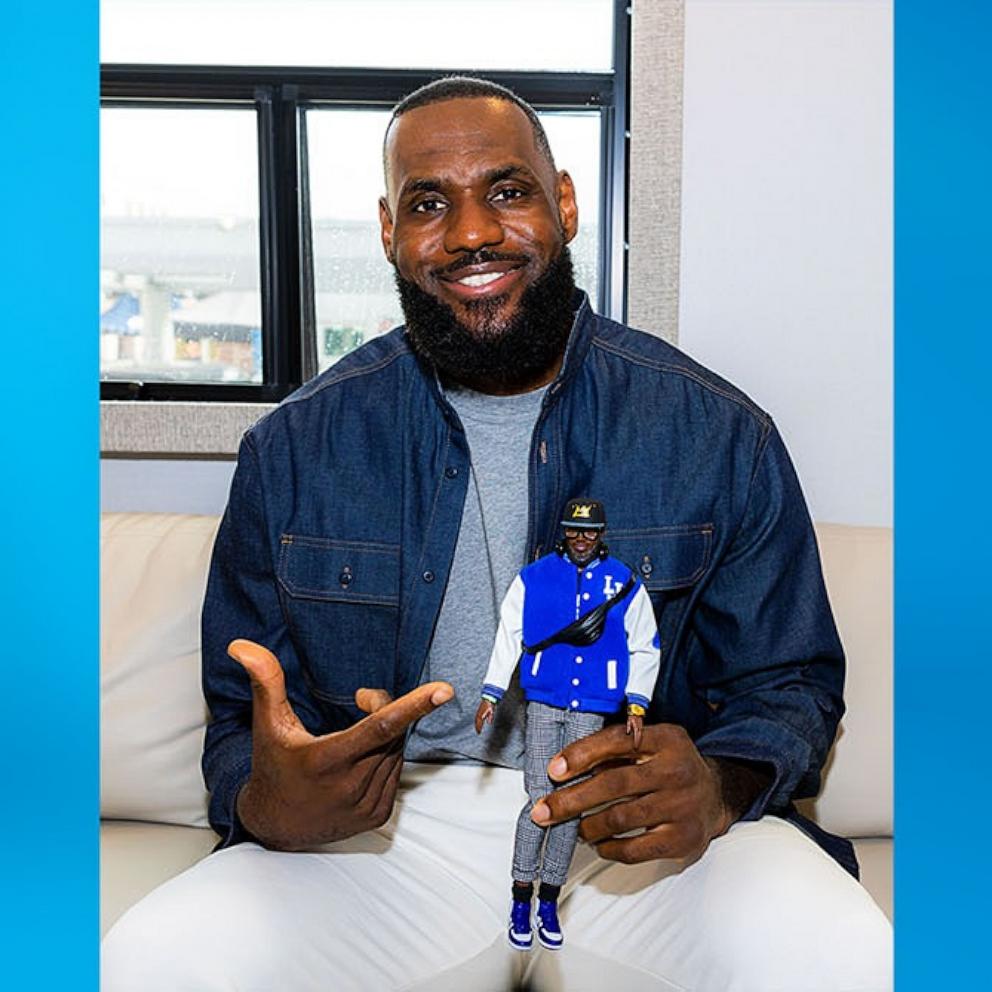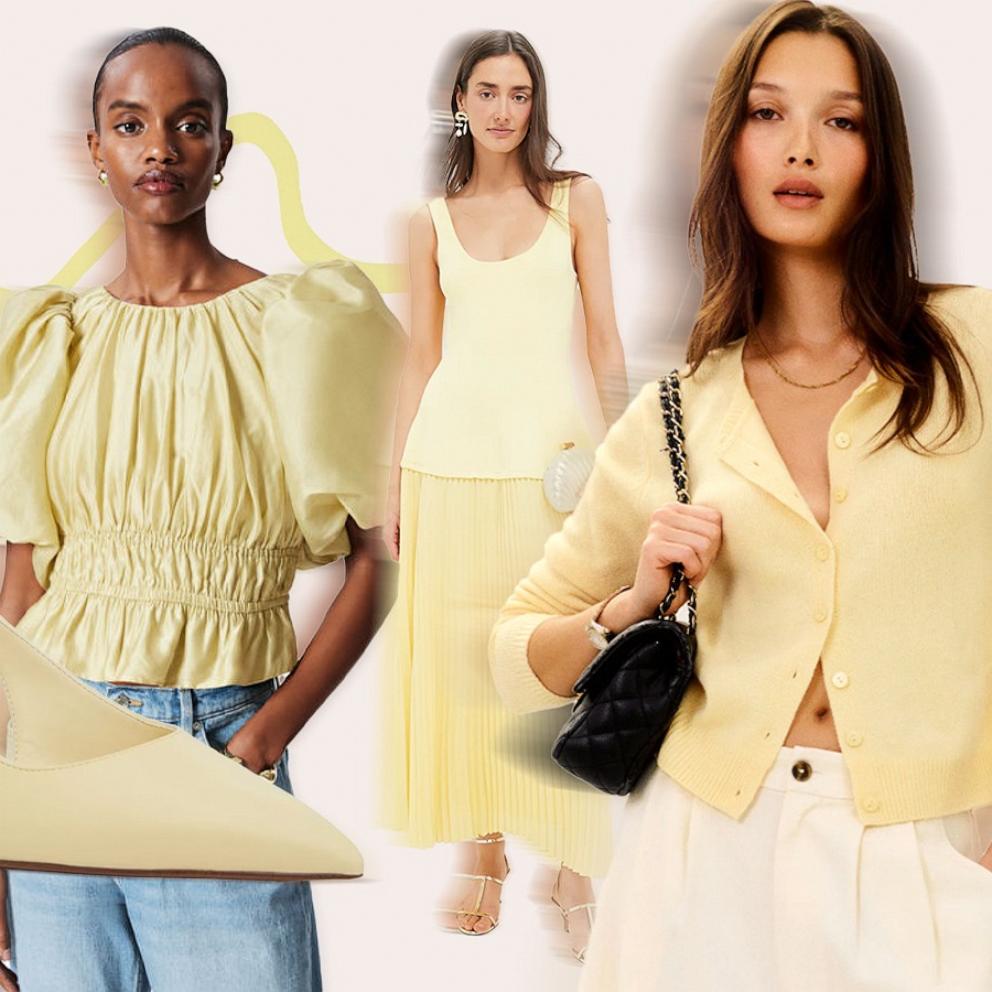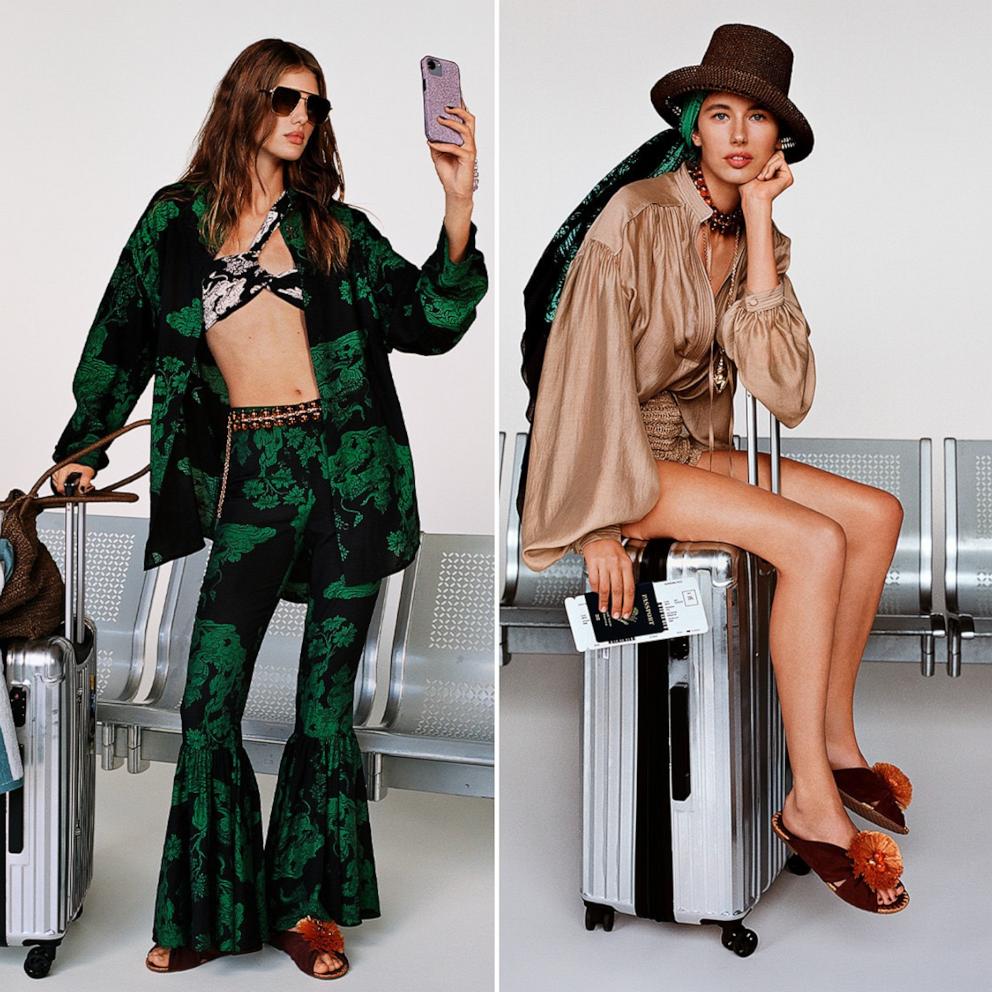We went vintage shopping with gender non-conforming writer Jacob Tobia to learn how to pick an iconic look
Jacob Tobia is a force, standing at over 6 feet tall in five-inch heels and sporting a manicured five o’clock shadow and a bright pink lip. They also have the wit and intelligence to match.
Tobia, a gender nonconforming writer, producer and performer whose pronouns are they/them, is author of the forthcoming memoir "Sissy: A Coming-of-Gender Story." Tobia brings us on a simultaneously hysterical and heart-wrenching journey from childhood through adulthood as a nonbinary person.
Their voice is unique and inspirational, and Tobia challenges the notion that people are easily sortable into two genders: “men” and “women.”
"GMA" got a chance to hang out with Tobia while they engaged in their favorite form of exercise: vintage shopping.
How do you like to describe yourself?
I am a shiny, glimmering, beautiful, incredible, gender-queer unicorn, and I am prancing everywhere that I can.
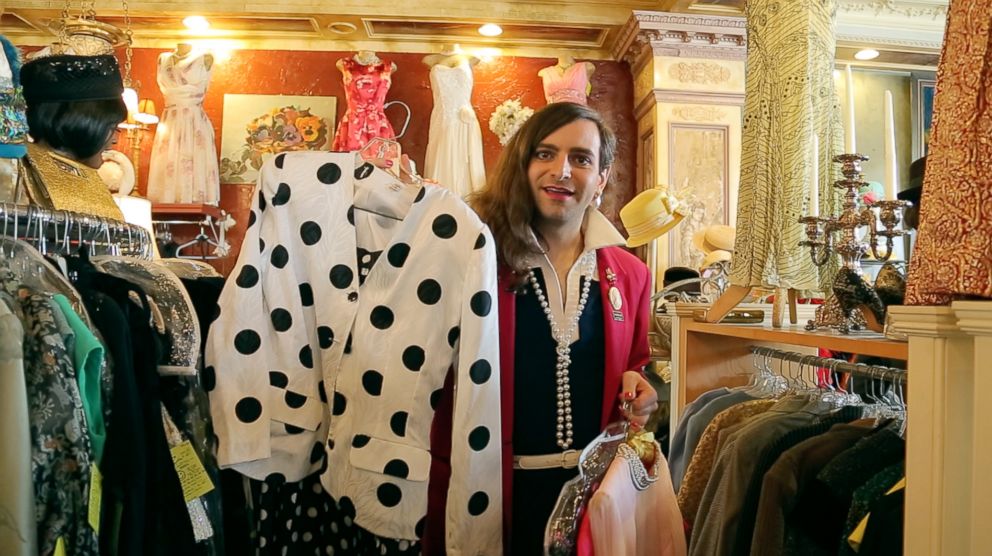
'Sissy' follows your identity journey from childhood through adulthood. Why was writing about young Jacob such an important part of your process?
Most gender nonconforming people still have a pretty rough experience in the world we live in. I don’t think we make a kind world, especially for feminine little boys and for feminine kids in general, and I want a kinder world for them. I’m trying to build a world where gender non-conforming kids get to have a wonderful time and get to be loved and affirmed in their communities just as they are.
In terms of gender, how do you identify?
I like to think about identity, not as one thing you have to stick with, not one word you have to choose, but a layer cake where you get to choose as many words and identities as feel good for you. So for me, I like to use the terms gender queer, nonbinary, gender non-conforming, trans — a lot of labels really work for me, because it’s about expanding our gender possibilities, not confining them.
In 'Sissy,' you often mention shopping at vintage and thrift stores. Why are these stores so meaningful?
I love vintage shopping and thrift store shopping because it inherently is playful and fun. When you think about conventional retail stores, most of them are super-rigidly gendered. It’s like, here’s the men’s clothes and here’s the women’s clothes. Whereas in vintage stores, everything is kind of everywhere. People are willing to be playful and have a sense of experimentation about it all. I can really express my creativity and feel supported by everyone else in the store.
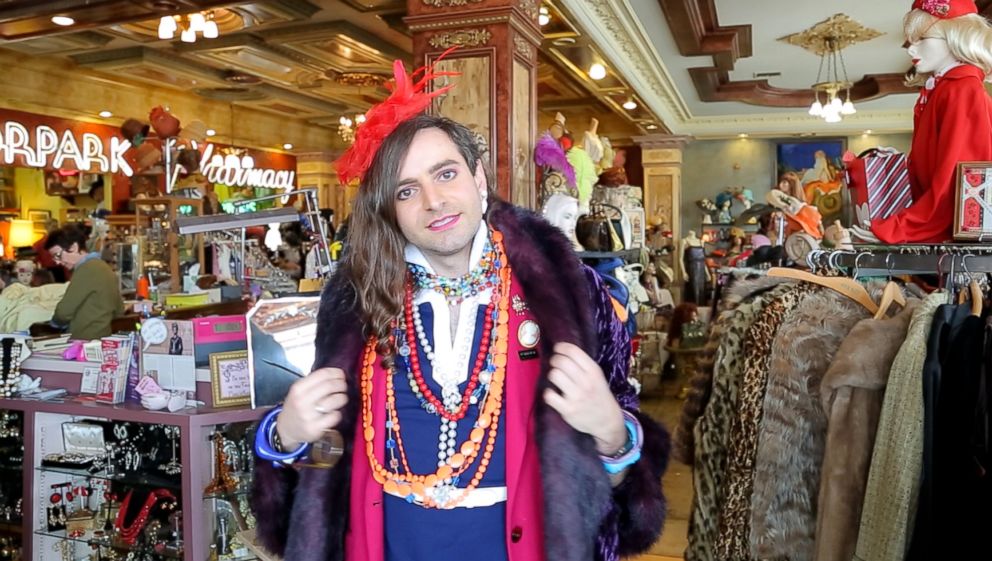
You have professed your love for loud patterns, costume jewelry and bright lipstick. What is your fashion inspiration? Any icons you look to?
My fashion icon is my grandma. She was a fabulous Southern lady who wore the most incredible 1980s pastel windbreakers, the cutest little vintage dresses, pearls, all that cute stuff. I really love vintage clothing because it reminds me of my grandma, it reminds me of my family and it helps me feel connected to my past and my history and to who I am.
Learning to embrace my gender through clothing was my way of learning to affirm my femininity and love my gender as it is.
The pronouns 'they/them' are often misunderstood. Why do pronouns matter?
Pronouns are how we understand ourselves. They are the way that we signify to others who we are. For me, when someone says the pronoun “he,” it’s not the biggest insult on the planet, but it doesn’t feel like it accurately captures who I am. It feels like putting me in a box that I spent a lot of time breaking out of. The reason why I love they/them as my pronoun is because it leaves me free to express my gender in whatever way that feels good that day. It allows me the freedom to live in my body and in my skin however I choose.
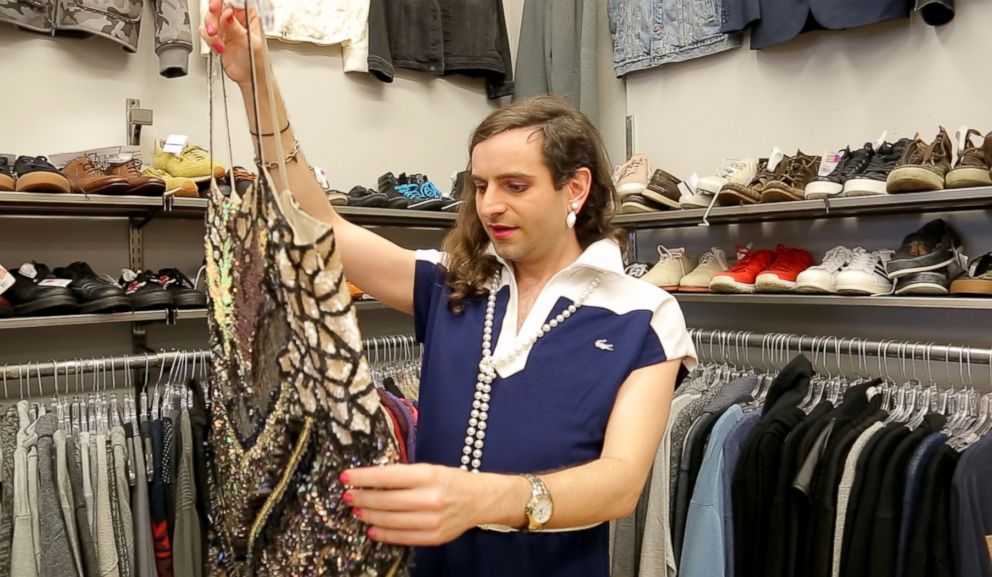
After reading 'Sissy,' it's clear that you received a lot of love and support from allies in your life. How can we all be better allies?
There are a lot of things that you can do to be better allies toward gender non-conforming people like me. I think the main one is, if you see someone being unkind to somebody on the base of their gender, say something. An experience that’s pretty common for gender non-conforming people is to get stared at in public, to be harassed sometimes, to have people look at us quizzically when we go into whatever bathroom feels good for us. I think that the best thing that allies can do is just be supportive and speak up if they see someone mistreating someone like me.
